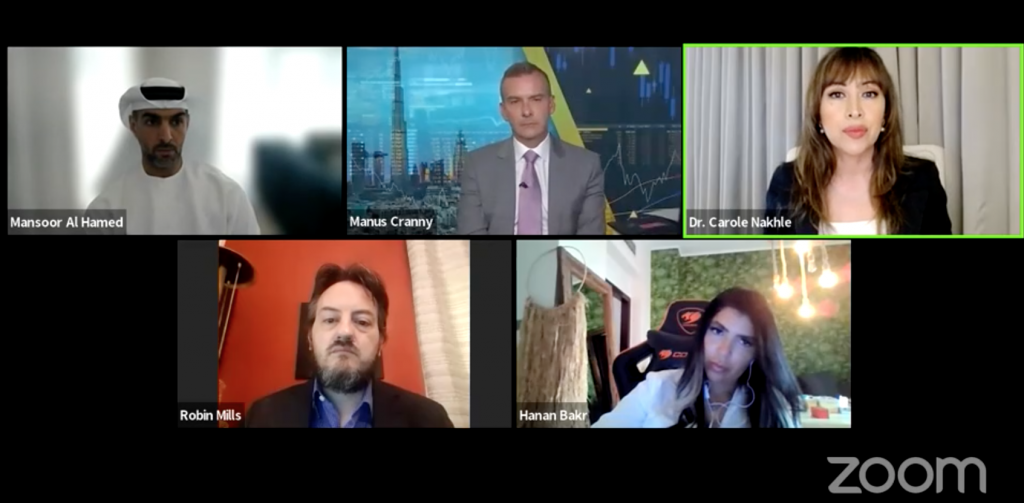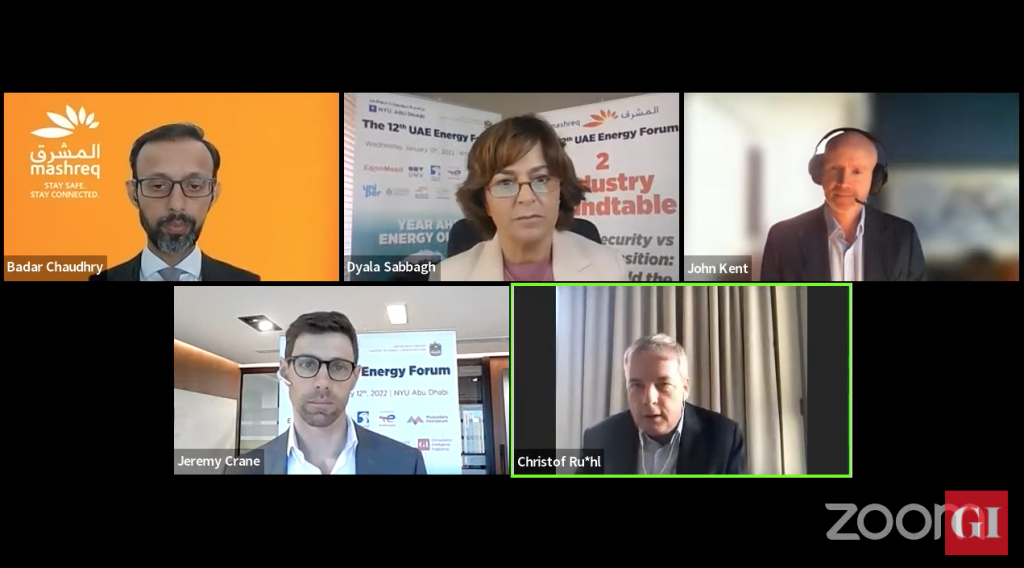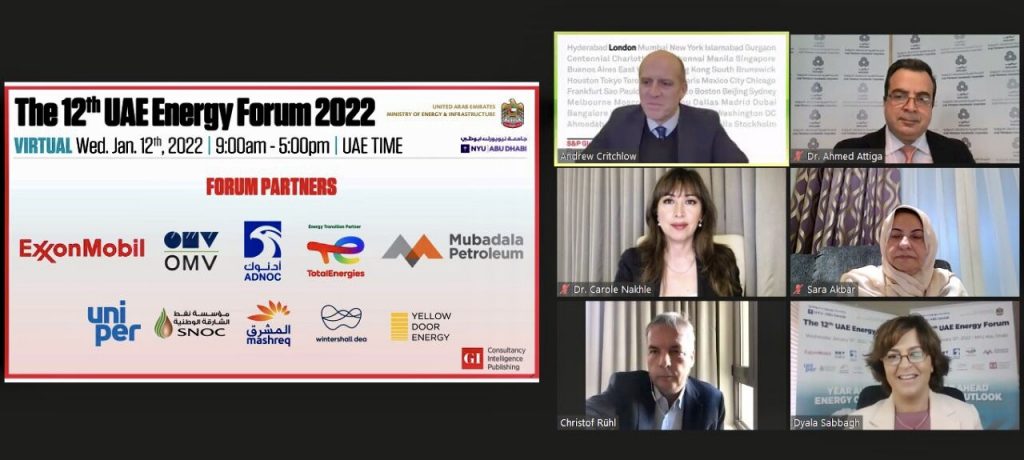Crystol Energy was actively involved in the 12th UAE Energy Forum 2022 hosted by the Gulf Intelligence on January 12, 2022.
Dr Carole Nakhle, CEO of Crystol Energy, discussed the role that natural gas can play in accelerating energy transition and meeting the Middle East’s low carbon objectives.
Some of the key points Dr Nakhle raised include:
- In theory, the Middle East could pretty easy achieve its self-sufficiency in natural gas production as the region sits on the world’s largest natural gas reserves – more than 40% of world’s proven gas reserves
- However, the region has not fully exploited its potential. In contrast, the US, the world’s largest gas producer, sits on less than 8% of the global gas reserves
- Most of the gas produced in the Middle East is associated gas – gas produced along oil – so we need to see a greater push in investing in raw gas production for the region to fulfil its ambitious goals for natural gas
- Hydrogen is not a new thing for the Middle East as the region has been producing it for years as part of the petrochemical/refinery business. However, the big question is how to do it in a clean and cost-effective way on a global scale
- The region has already a competitive advantage because the commercial aspect of hydrogen depends a lot on the feedstock, and natural gas is comparatively cheap in the Middle East
- We should not look only at the production side, the big bet is going to be securing the markets
In a separate plenary session, Christof Rühl, member of the Advisory Board of Crystol Energy and a Senior Fellow at the Center on Global Energy Policy at Columbia University, talked about the challenges economies face in achieving the balance between energy security and energy transition.
Some of the key points Christof addressed include:
- Historically, energy transitions have been driven by economics. Today’s energy transition, though, is different because it is driven by the change in preferences, which means that we have to incur a cost at this moment in order to have a benefit decades down the road. That automatically implies that there are going to be winners and losers
- The key question for the governments becomes: how do you allocate the energy budget so the costs of the frictions are minimised and you create a situation where people feel reasonably safe and secure
- The belief that higher fossil fuel prices will accelerate the energy transition is both from an economic and a social perspective faulty
- The prime target has to be efficiency which implies we need to have renewables which can compete in their own merits. Large scale investments, which are necessary, will only happen if the private sector has the cushion of the government and the public sector behind it in order to risk these very high sums for a very long term
- Starting with unrealistic energy transition targets will not do us any favour in the long term; in contrast, they are expected to create more hiccups down the road
Dr Nakhle and Christof also participated at the Energy & Investment – Mind the Gap panel discussion, talking about the irresponsible capital vs responsible capital.
Key points raised include:
- Warnings of an investment gap, especially in the oil and gas industry, are sort of an old story
- When we are talking about investment gap, there is an important variable that you take into consideration to appreciate the warnings that are being made and this is the demand growth forecasts. The problem is that there are big discrepancies when it comes to demand growth projections
- There are more reasons now than ever before to be cautious of the notion of the investment gap because of the lack of investment in many western-based oil & gas companies for both regulatory and shareholders’ reasons related to energy transition
- We are probably in the decade during which we are going to see demand peaking, at least in the oil industry. That means that we are entering a very different world, a world of a shrinking oil market which will be characterised by competition among producers for the cheapest available resource. That, again, will accelerate the shift towards state-owned companies
- The investment gap is much more complicated and requires a more comprehensive understanding
- How do you describe investment in oil and gas in much poorer nations who have nothing to build their economies on, except oil and gas? Is that investment regarded as responsible or not?
Related Analysis
“Masdar – energy transition in action“, Dr Carole Nakhle, Sep 2021
“Trying to grasp the geopolitics of the energy transition“, Dr Carole Nakhle, Sep 2021
“The energy transition: Some inconvenient truths“, Dr Carole Nakhle, Jun 2021
“Saudi Arabia’s energy ambition: From oil to gas“, Dr Carole Nakhle, Mar 2021
“Oil in the energy transition age“, Dr Carole Nakhle, May 2020
Related Comments
“The Energy Transition: Aspirations vs Realism“, Dr Carole Nakhle, Dec 2021
“International Oil Companies and Energy Transition“, Dr Carole Nakhle, Jun 2021
“OPEC+ Output Decision and the Challenges of Energy Transition“, Dr Carole Nakhle, Jun 2021
“The greening of oil companies“, Dr Carole Nakhle, May 2021











